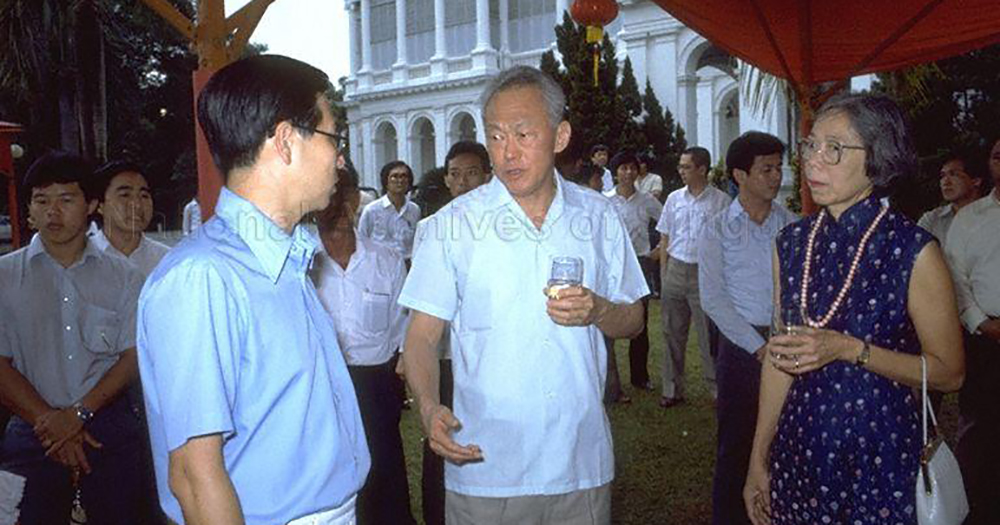Following a review of ministerial salaries, the government has decided to freeze minister wages for the next five years til 2023, despite the review committee recommending a 9% increase.
The issue of ministerial salaries has been a "very difficult and very emotional" hot potato for the government ever since they decided to peg it to the private sector.
In the 1985 Budget debate, then Prime Minister Lee Kuan Yew justified why ministers should be paid so much.
[related_story]
Opposition politician J. B. Jeyaretnam disagreed then, opining that public office should never be compared to the private sector because the former is an honour, duty, and service that must not be demeaned with a price tag.
In return, Lee rebutted that serving out of duty and service is not adequate enough for a younger generation of leaders, saying:
"But they are of a different generation, and I am not saying that they would not have made the same sacrifices. I could still pay them on the old rates, but would I be doing the right thing by them and by the country? For my generation, it does not matter."
 Then-PM Lee Kuan Yew in 1985. Via NAS.
Then-PM Lee Kuan Yew in 1985. Via NAS.
Not wise to demand 'absolute dedication to a cause'
He went on to demonstrate this point by highlighting the fact that in 1959, the time PAP came into power, ministers (including Lee) took a pay cut for two years.
Following that, Lee continued to take a pay cut until 1973 to avoid sending the wrong signals to the ground when unemployment was rife. To that, Lee said:
"For the generation that knows my colleagues and I, I do not have to prove anything. But perhaps for the younger generation I ought to mention that I do not believe Singapore is wise in demanding of my younger colleagues that same total, absolute dedication to a cause. I am not saying they are not, but I am saying I do not want to put them to that stress."
But more interestingly, Lee's approach was that the sense of duty to one's nation was forged through the dire, hard circumstances of nation-birthing, something the newer generation never grew up with and hence, couldn't be expected to live up to the same "unbending desire to keep a stainless surface".
A different generation
To Lee, the pragmatic way to persuade a new generation of qualified leaders entailed providing them with a salary that enables them to take the challenges of government in stride. For these people who grew up in relative comfort, there was no reason for them to exchange that for less.
During the debate, Lee highlighted his problem with finding people to take on the roles of Chief Justice and Attorney-General, and this issue of getting qualified people into the service has been a perennial problem since 1981:
"I have a vacancy for the Chief Justice. He is coming on to 68. There is nobody below 65 who is qualified and prepared to take on the job. I have a vacancy for the Attorney-General, who has come to 55 and is entitled to retirement.
I have a vacancy for the Permanent Secretary, Ministry of Law, who is on Superscale C, and since Mr Chandra retired we are so short of lawyers that we have made Mr Hochstadt, who is not a lawyer, double up.
I have two judges who are over 70 years old. I have seen a dozen lawyers at the Bar who have the potential to be a Judge. They want more time. I came with this problem in 1981. The Member for Anson has done me the courtesy of looking up my speech in 1981 by reading from Hansard, and so he knows the problem. It is a very simple human problem."
Lee contended that attractive high salaries and a tight rein on public office allows for capable candidates and ensures clean governance.
Top image from NAS.
If you like what you read, follow us on Facebook, Instagram, Twitter and Telegram to get the latest updates.